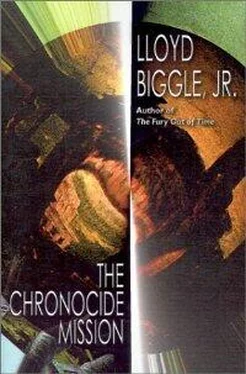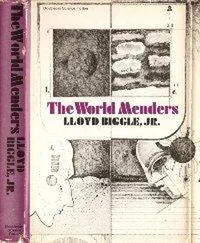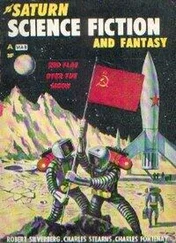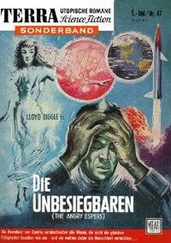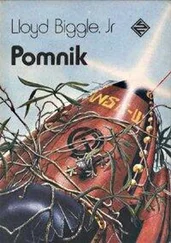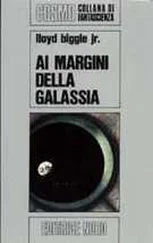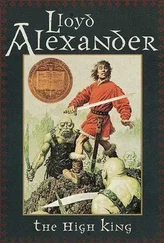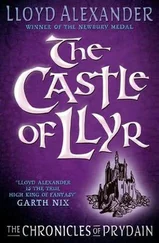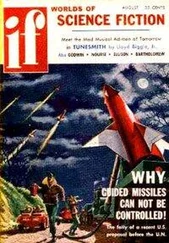Lloyd Biggle Jr. - The Chronocide Mission
Здесь есть возможность читать онлайн «Lloyd Biggle Jr. - The Chronocide Mission» весь текст электронной книги совершенно бесплатно (целиком полную версию без сокращений). В некоторых случаях можно слушать аудио, скачать через торрент в формате fb2 и присутствует краткое содержание. Год выпуска: 2002, ISBN: 2002, Издательство: Wildside Press, Жанр: Фантастика и фэнтези, на английском языке. Описание произведения, (предисловие) а так же отзывы посетителей доступны на портале библиотеки ЛибКат.
- Название:The Chronocide Mission
- Автор:
- Издательство:Wildside Press
- Жанр:
- Год:2002
- ISBN:978-1-58715-549-9
- Рейтинг книги:5 / 5. Голосов: 1
-
Избранное:Добавить в избранное
- Отзывы:
-
Ваша оценка:
- 100
- 1
- 2
- 3
- 4
- 5
The Chronocide Mission: краткое содержание, описание и аннотация
Предлагаем к чтению аннотацию, описание, краткое содержание или предисловие (зависит от того, что написал сам автор книги «The Chronocide Mission»). Если вы не нашли необходимую информацию о книге — напишите в комментариях, мы постараемся отыскать её.
The Chronocide Mission — читать онлайн бесплатно полную книгу (весь текст) целиком
Ниже представлен текст книги, разбитый по страницам. Система сохранения места последней прочитанной страницы, позволяет с удобством читать онлайн бесплатно книгу «The Chronocide Mission», без необходимости каждый раз заново искать на чём Вы остановились. Поставьте закладку, и сможете в любой момент перейти на страницу, на которой закончили чтение.
Интервал:
Закладка:
He got to his feet. He towered over the stooped old man, holding his open jackknife like a weapon. The forceful anger he displayed was genuine. “Send me back!” he demanded sternly.
The old man’s features continued to register astonishment.
“Your pig landed in my lap,” Kuznetsov said accusingly.
“Peeg?”
Kuznetsov pointed. “Pig. That’s a pig. One just like it landed in my lap. The next thing I knew, I was here. Send me back.”
The old man suddenly became articulate. His jabbered response engulfed Kuznetsov like an rampaging Niagara. Any meaning his words carried was swept along on the same current, and both words and meaning washed over Kuznetsov unintelligibly. Finally Kuznetsov put an end to the torrent by shouting at the top of his voice. He didn’t know where he was, or why, but he had already decided he didn’t like it.
“Send me back!” he demanded again. “Back. Where I came from.” Then, as he began to grasp the full implications of his predicament, he modified his tone. “Please send me back.”
The old man seemed to understand. He walked to the far corner of the room. Staring after him into the dim light, Kuznetsov made out something that looked like an enormous, crudely built photographic enlarger. On the floor, a series of concentric circles had been burned into the wood, and these were divided into segments by chalk lines, some of which had been partially obliterated by Kuznetsov’s sliding entrance. The old man stood Kuznetsov in the central circle. Then he brought a short wood stepladder, climbed up to his apparatus, and began fussing with it. Kuznetsov had the sensation of having landed in a perverted Hollywood hodgepodge that blended Frankenstein and The Wizard of Oz , and it wouldn’t have surprised him if the old man had next handed him a bottle labeled, “Drink me,” but he stood waiting patiently.
The old man climbed down again, pushed the ladder aside, and took a dangling cord in his hand. He looked preposterously like an old-time photographer about to take a picture with an overhead, sadly obsolescent camera. He pulled the cord.
Kuznetsov screamed. His instinctive leap as the wave of torment swept over him probably saved his life. He collapsed on the floor a short distance away, writhing in unendurable agony. The intense pain quickly swept him into unconsciousness.
The agony persisted for days. He floated in a delirium of pain. His bones ached, his head throbbed, his ears rang, and his vision seemed blurred and distorted. He felt as though he had been flayed, and any hand, any finger that touched his flesh was a dagger stabbing him viciously. A woman came and went, and her hideously misshapen face gave Kuznetsov nightmares about being condemned to live forever in a world of grotesque distortions. Then the old man came, and his face was as Kuznetsov remembered it. Kuznetsov’s vision was normal. The old woman’s face really was hideously deformed.
Words were spoken to him, or spoken in his presence, and as time passed, some of them began to make sense. Even as he struggled out of the all-enveloping fog of pain, his mind was subconsciously learning or adapting to a language. There were familiar words pronounced differently and unfamiliar words that sounded confusingly familiar, and gradually he got them sorted out. Kuznetsov wasn’t good at languages, and the ease with which he assimilated this one seemed proof enough that it was somehow related to English.
His systematic study began with his quest for a date. It had been March 24, 2001 when he went to the park. When he began to recover, he wanted to know how long he had been delirious.
“Month” should have been an easy place to start, but the old man failed to recognize the word. Neither could Kuznetsov discover an equivalent for “March,” or “April” or any other month, or for “year,” or “week.”
Learning words for table and chair, for clothing, for food was easy. Kuznetsov pointed; the old man said the word. It was his attempt to relate the calendar he was familiar with to whatever system the old man used that tantalized and frustrated him. Winter, spring, summer, fall or autumn apparently had no analogies. Not until he accidentally happened on the word for “season,” which was “esun,” did he begin to make progress.
The calendar in this strange civilization was closely tied to the agricultural year. There were seasons of planting, of growing, of harvesting, and of resting, named Plao, Gero, Haro, and Reso. With that beginning, he was able to form an outline, and the old man quickly filled in the blanks once he understood what Kuznetsov wanted.
The year began—or ended—with a five day holiday, six days every fourth year, that undoubtedly had originated as a period of supplication to the gods for prosperity in the year to come. Kuznetsov was in no way surprised to discover that the original religious basis for the festival had been all but forgotten, and it had degenerated into five or six days of dissipation. Then came the first season, Plao, the season of planting, starting early in the March of Kuznetsov’s time reference. Each season was divided into three unnamed months of thirty days, called monts. They were designated Plao 1, Plao 2, Plao 3. “Days” were daez, “nights” niots, but weeks did not exist. Instead, each mont was divided into three tenites. Second Plao 2 referred to the second tenite of the second mont of planting.
Years were called sikes, and once Kuznetsov learned that, he quickly found out what year it was—A.T. 301, meaning “301 sikes after the troubles,” which told him nothing at all.
Gradually he acquired a vocabulary and became able to converse.
As soon as he could walk again, he began helping the old man with his experiments, and he made an astonishing discovery. This wrinkled, comic-opera looking gaffer possessed a spectacular scientific genius. He worked without electricity, without engineering—instruments and tools were fashioned with pathetic crudeness—without chemistry, without physics except for an unaccountable precision in lens grinding, and he accomplished miracles.
Kuznetsov also learned that the old man was a person of transcendent importance in this strange land, which was called Lant. He was Med of Lant, and visitors to his laboratory bowed to him as though he were a high nobleman, which he actually turned out to be. Everyone called him the Old Med, an astonishing license with a person of his rank. It indicated at the same time affection, awe, and reverence.
While Kuznetsov’s education went forward slowly, the Old Med was making an astonishing discovery of his own. This young stranger was an ideal research assistant. He was a college-trained engineer, and despite the lack of almost everything to work with, he could build instruments and tools with a precision the old man had not even imagined. Further, in a land where very little was known about anything, the knowledge of even a college undergraduate was beyond price.
The old man quickly gave Kuznetsov honored status as his principal assistant, and, when difficulties arose over what to call him—Kuznetsov naturally didn’t want the same name blighting his existence in this new incarnation—the Med shared a name of his own with him. He called him Egarn.
One fact had been burned into Kuznetsov’s consciousness indelibly. He could never go back. The attempt to return had come within an eyelash of killing him. Wherever he was, and however he had got here, it had been a one-way trip.
He savored his new name—Egarn, he liked the sound of it—and gradually he began to grasp the possibility of a career in this strangely primitive Peerdom of Lant. It was already evident that the Old Med wanted him to continue his research after he died. The newly christened Egarn resolved to accept that legacy as a sacred trust. He would devote his life to advancing the Old Med’s discoveries. Genuine scientific and technological achievement would be impossible with such limited resources, but there were many simple inventions and discoveries he could make that would transform his newly adopted land. Just for a beginning, he intended to give its people the germ theory of disease. If he could find anything to use for wire, he might even invent electricity.
Читать дальшеИнтервал:
Закладка:
Похожие книги на «The Chronocide Mission»
Представляем Вашему вниманию похожие книги на «The Chronocide Mission» списком для выбора. Мы отобрали схожую по названию и смыслу литературу в надежде предоставить читателям больше вариантов отыскать новые, интересные, ещё непрочитанные произведения.
Обсуждение, отзывы о книге «The Chronocide Mission» и просто собственные мнения читателей. Оставьте ваши комментарии, напишите, что Вы думаете о произведении, его смысле или главных героях. Укажите что конкретно понравилось, а что нет, и почему Вы так считаете.
